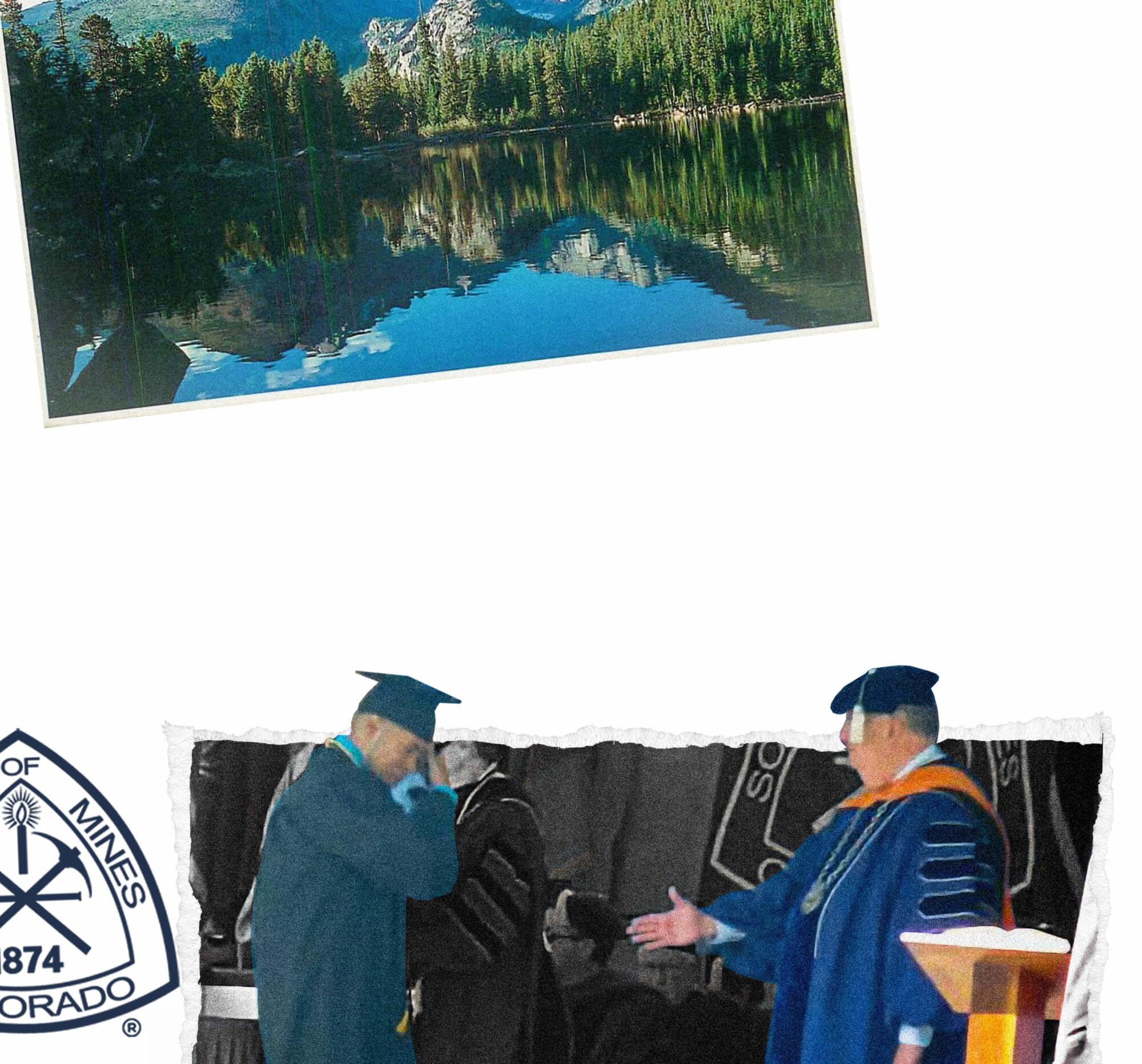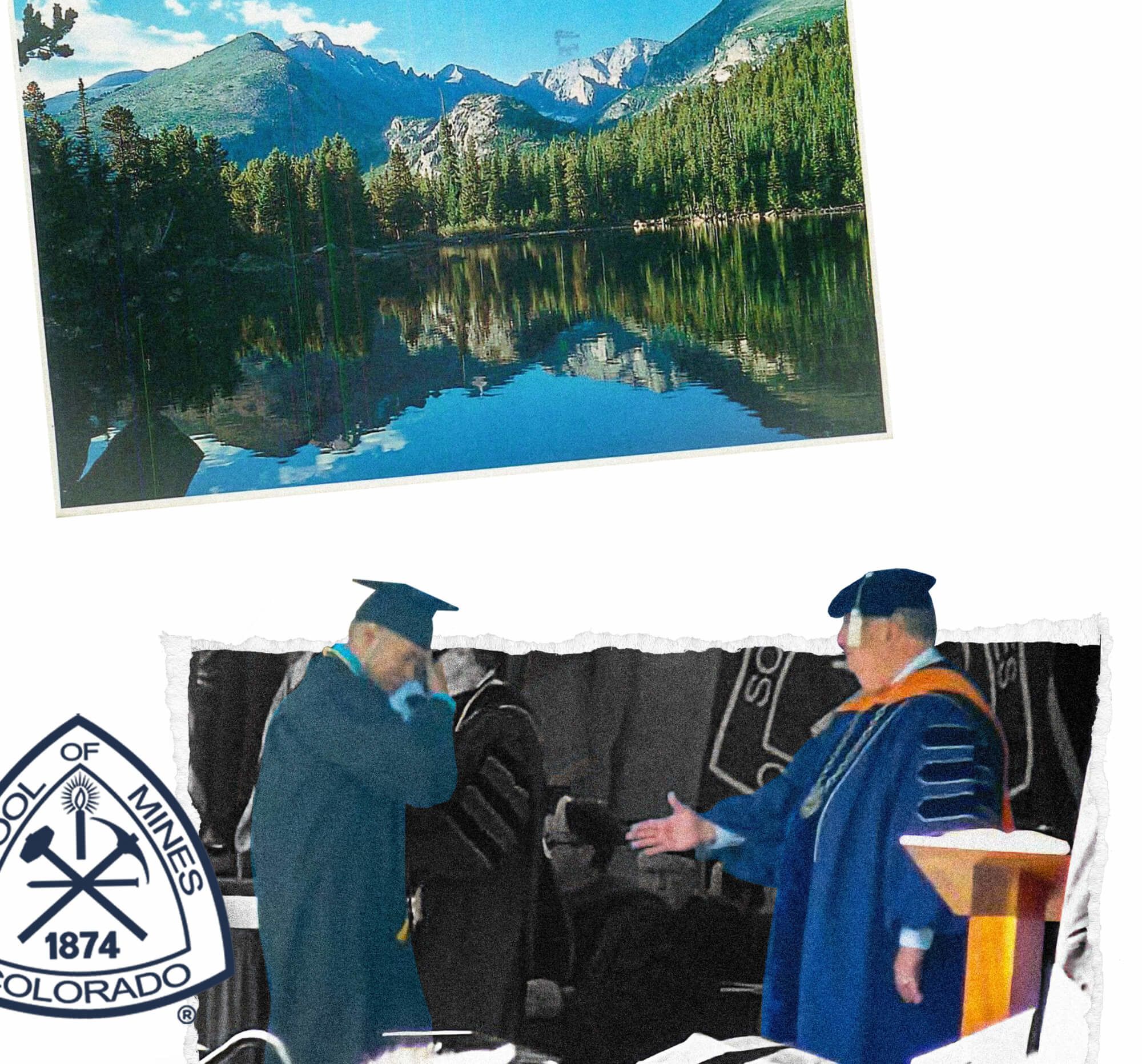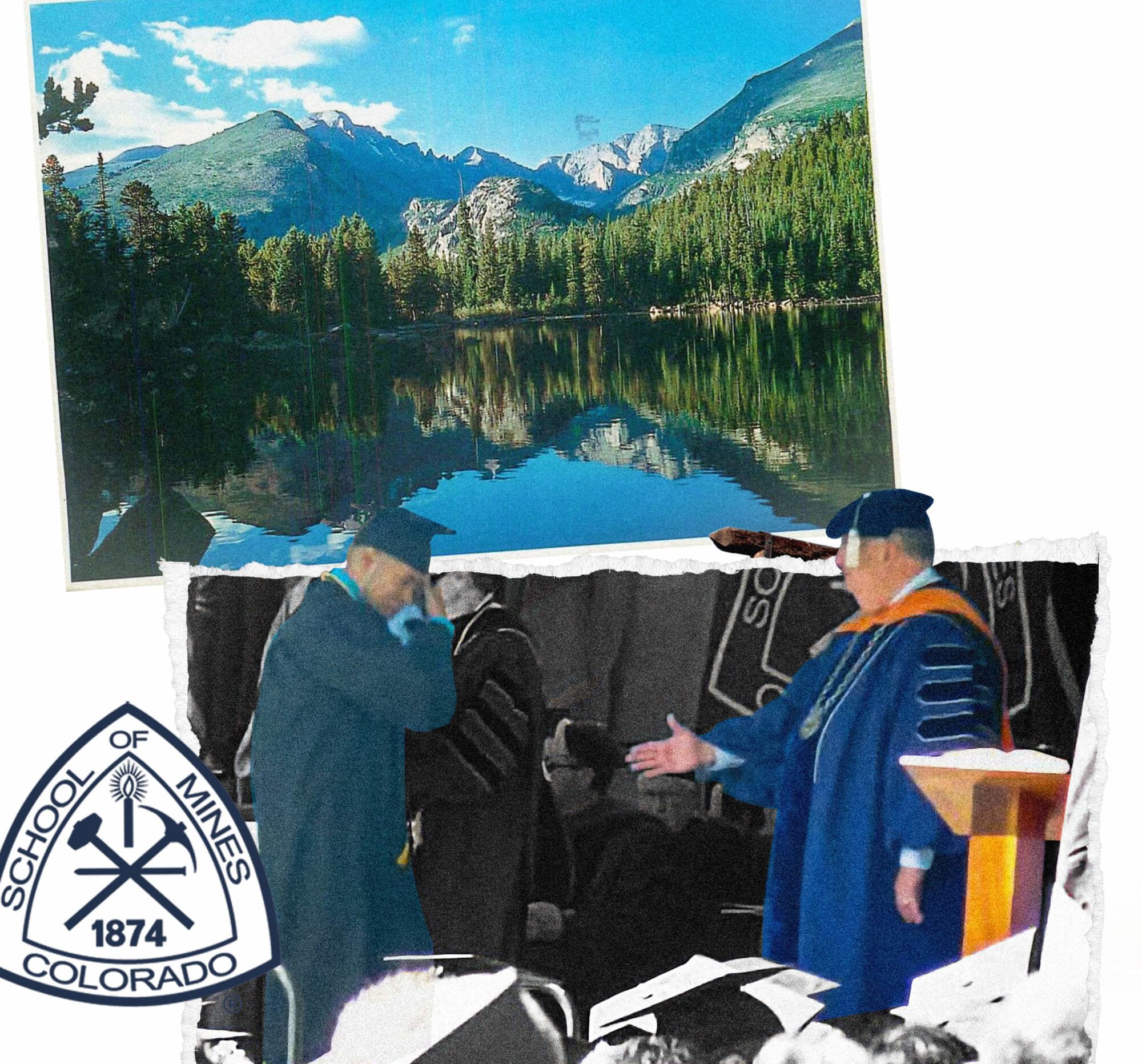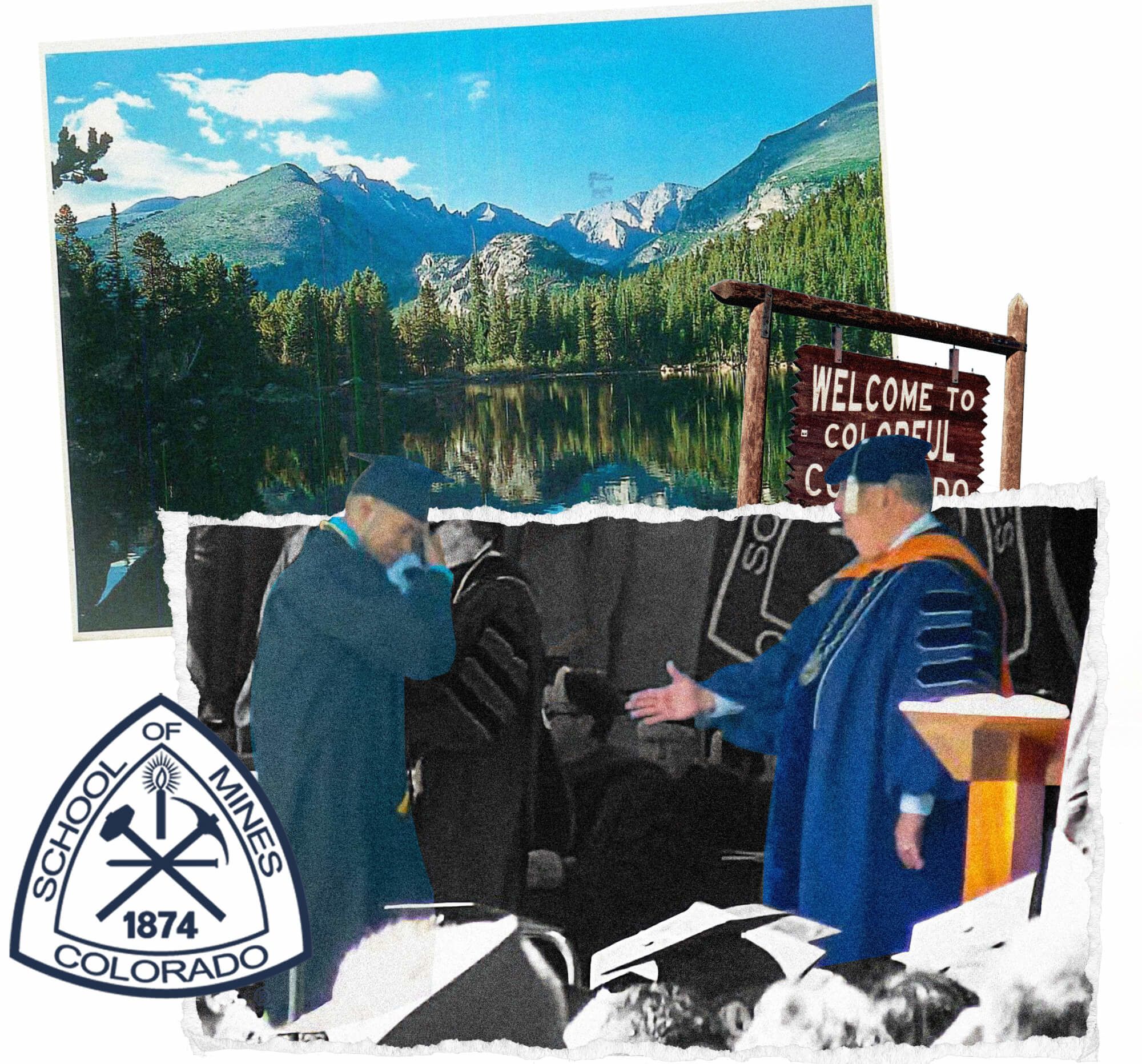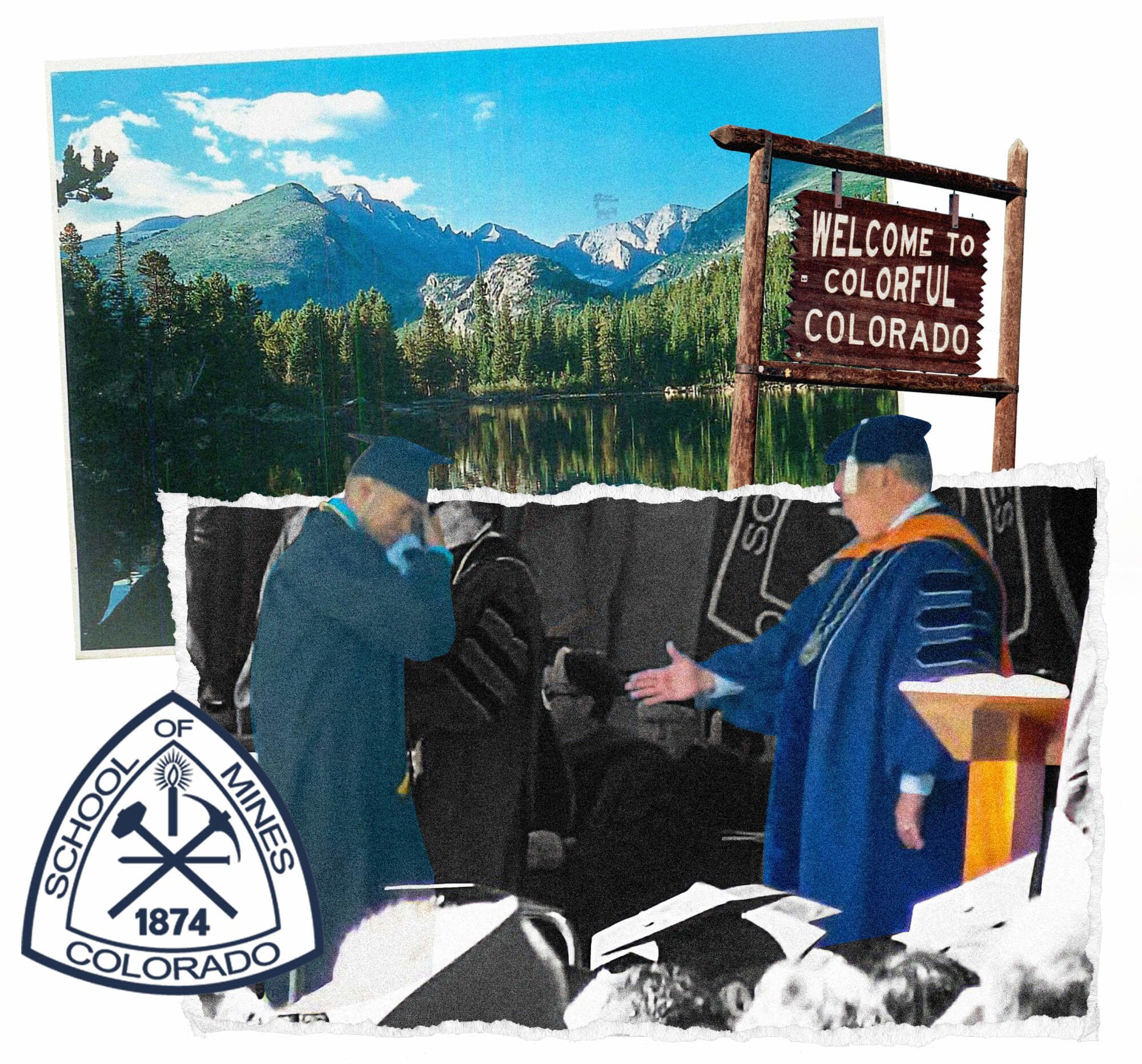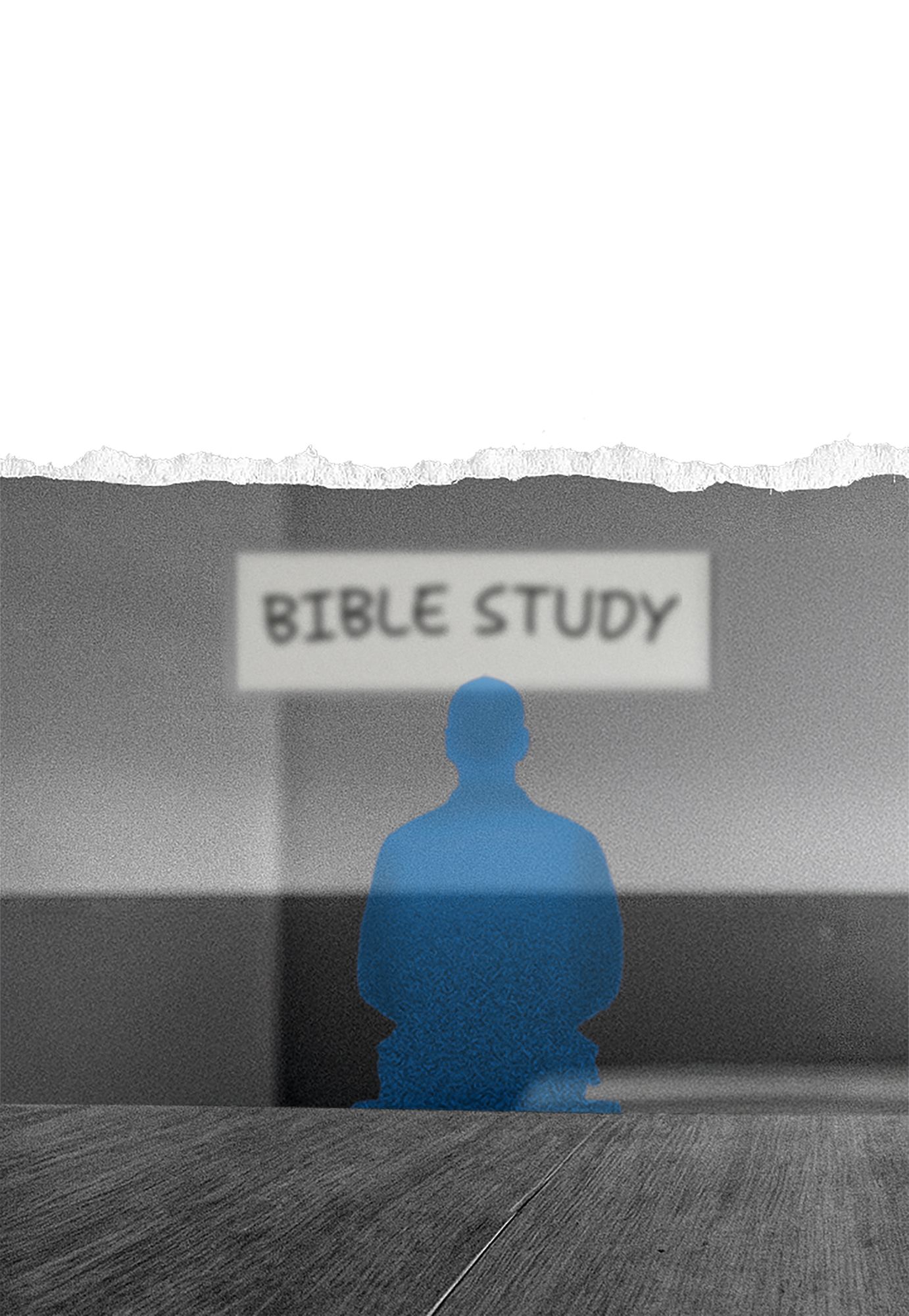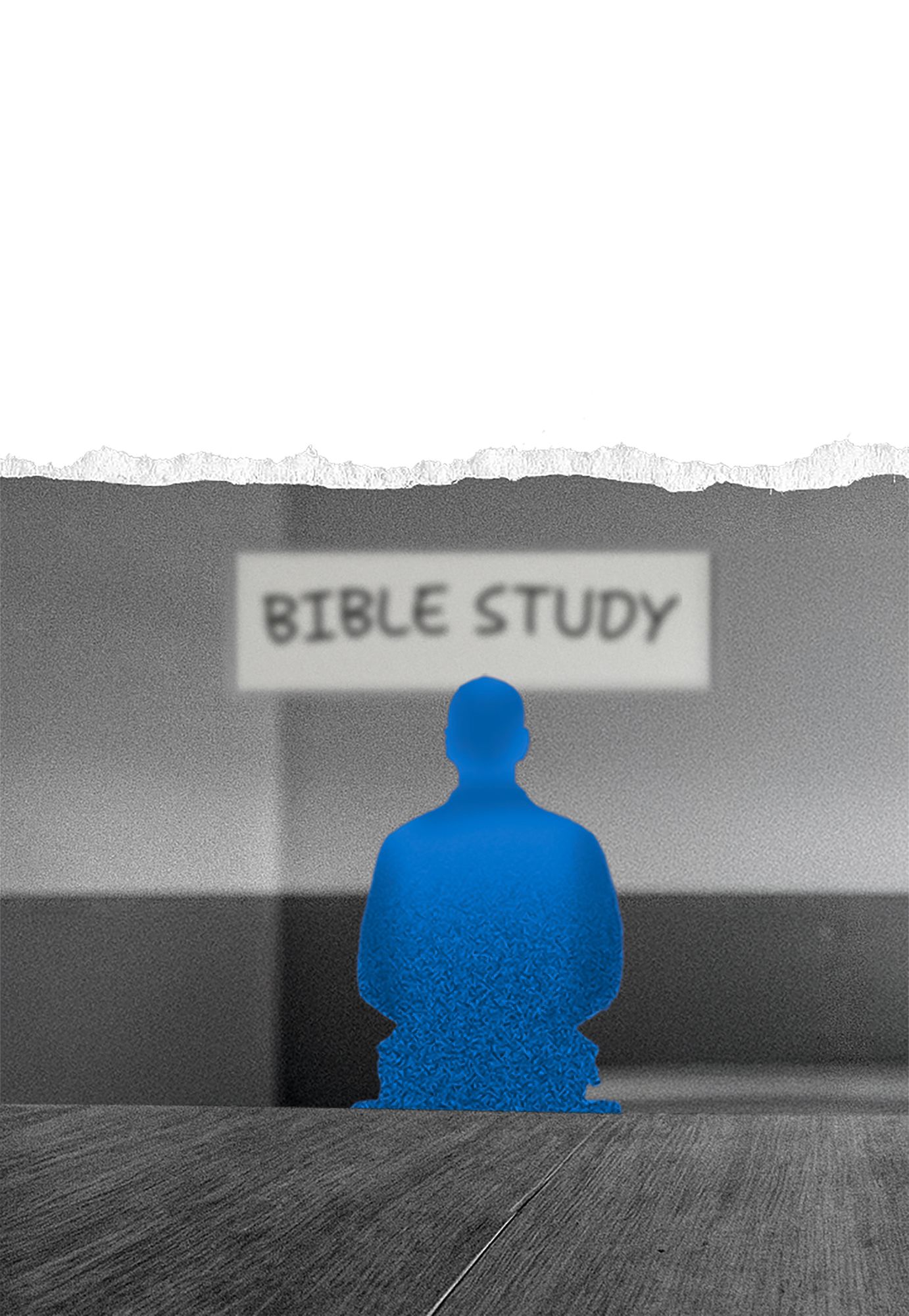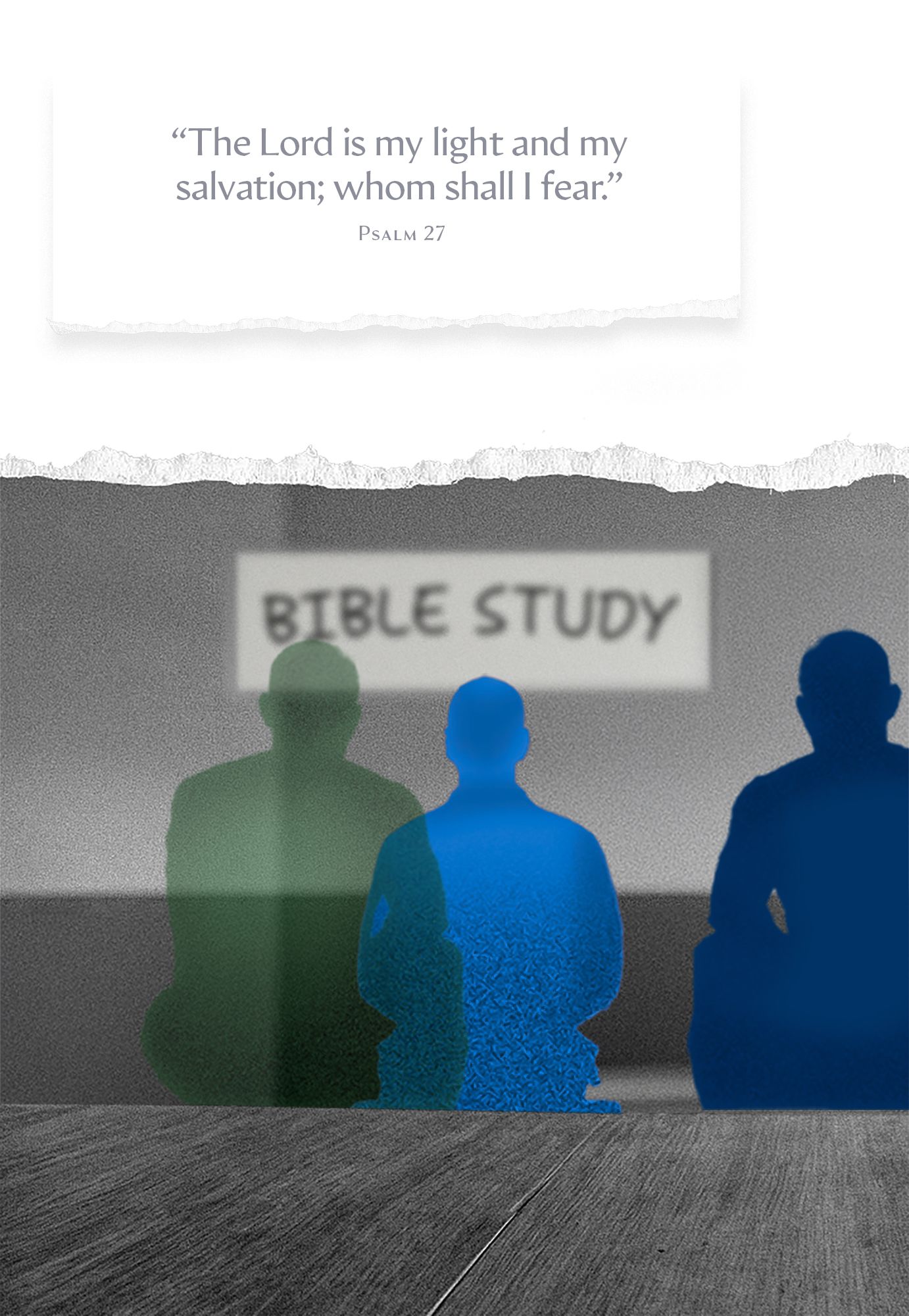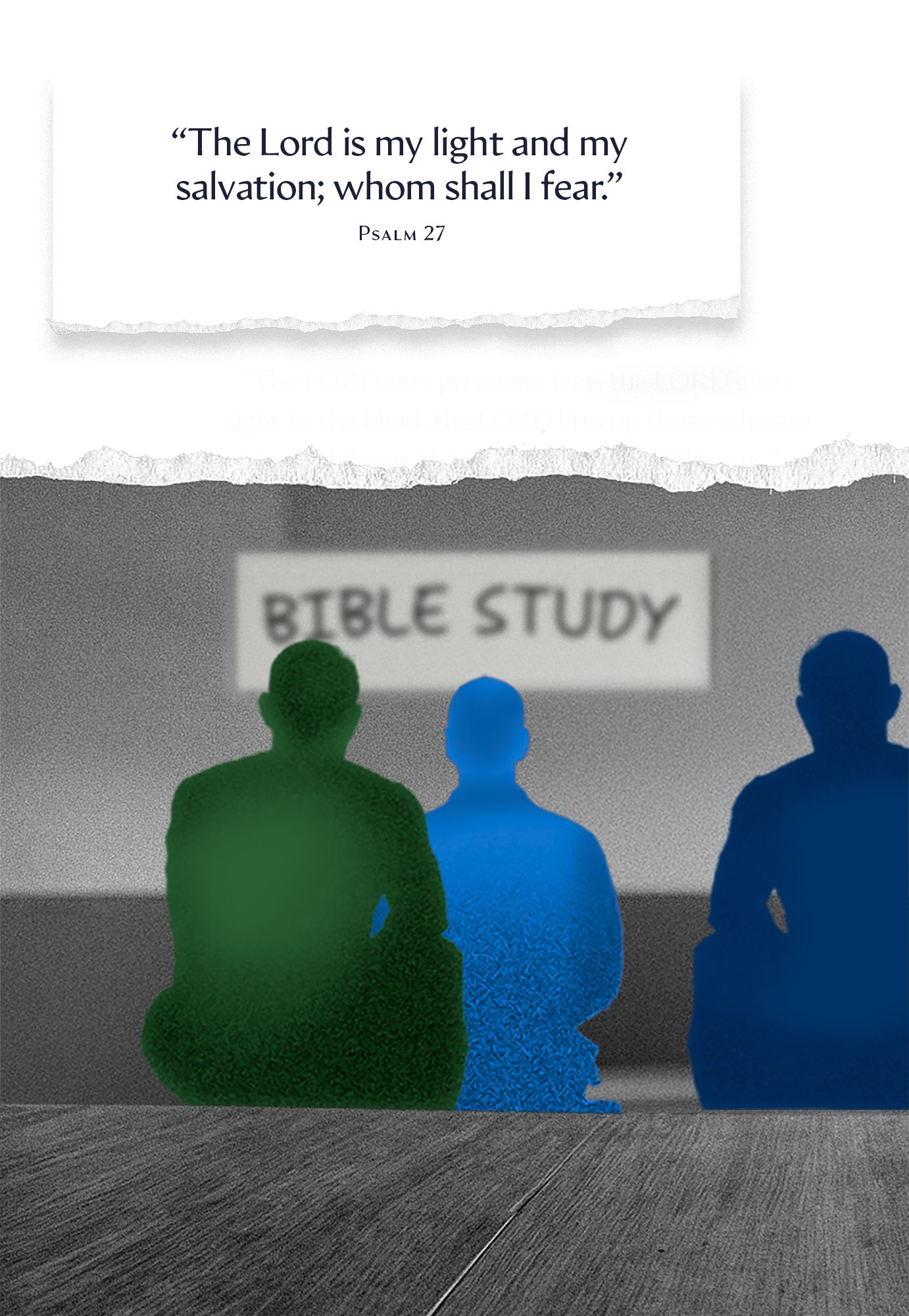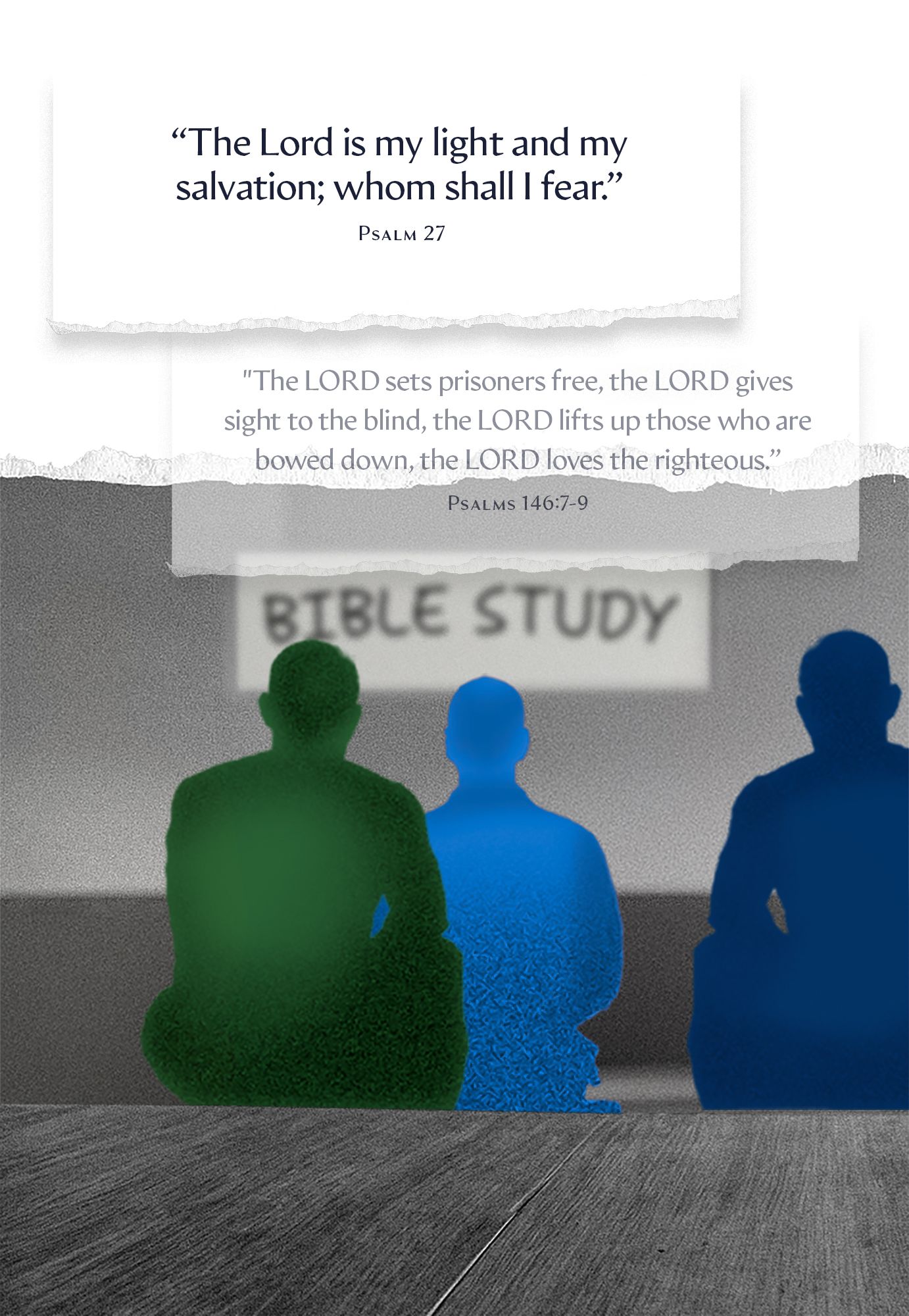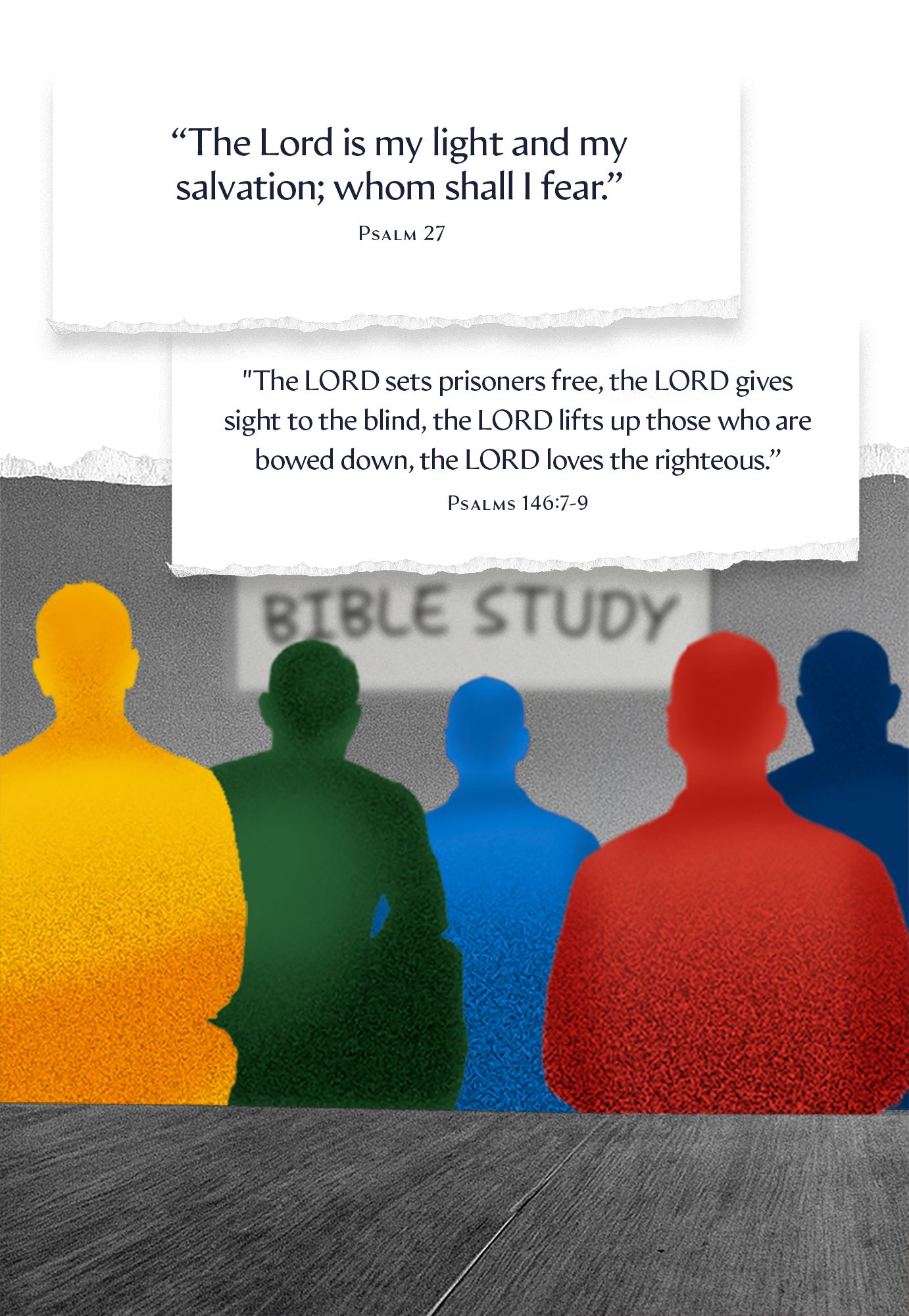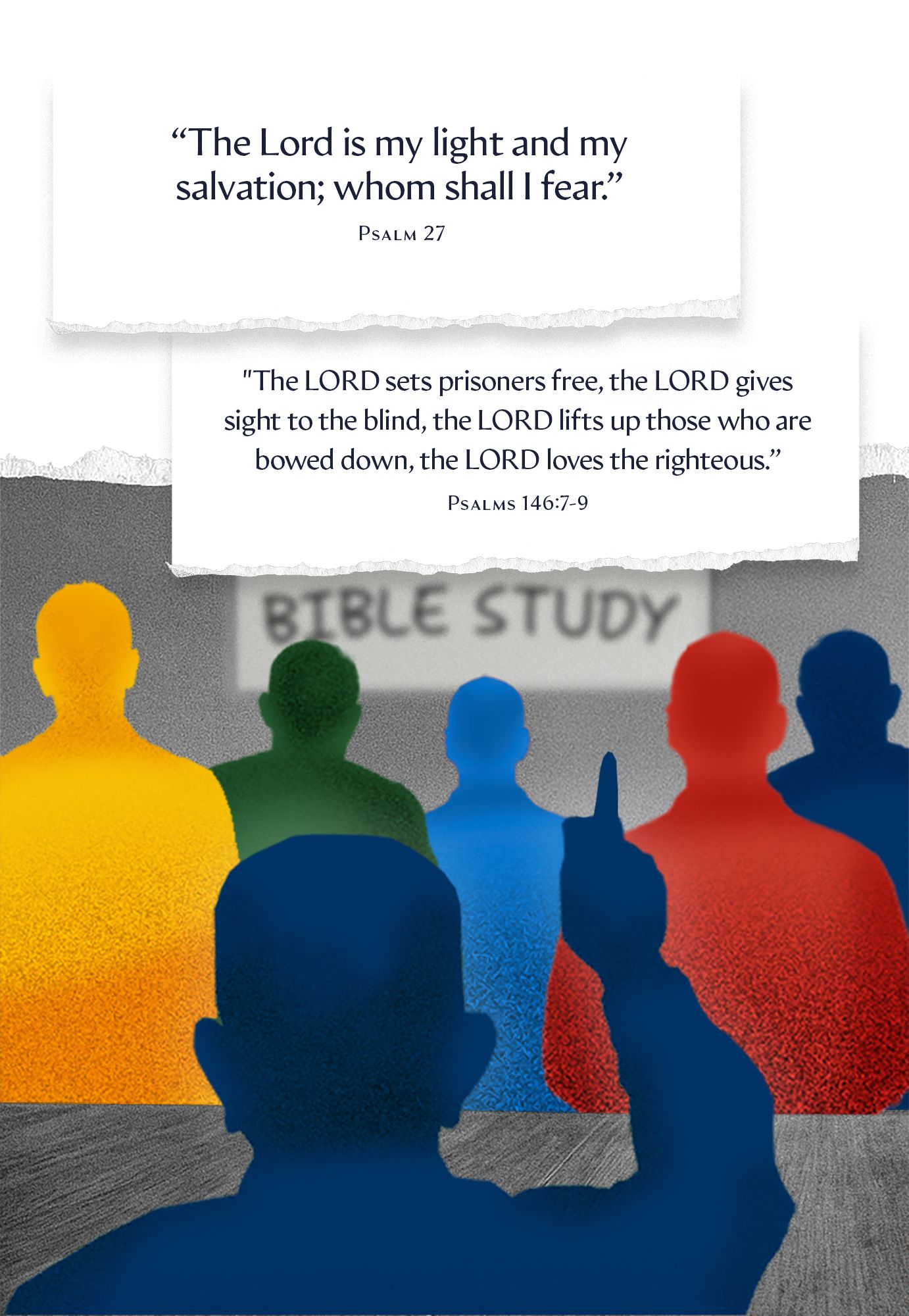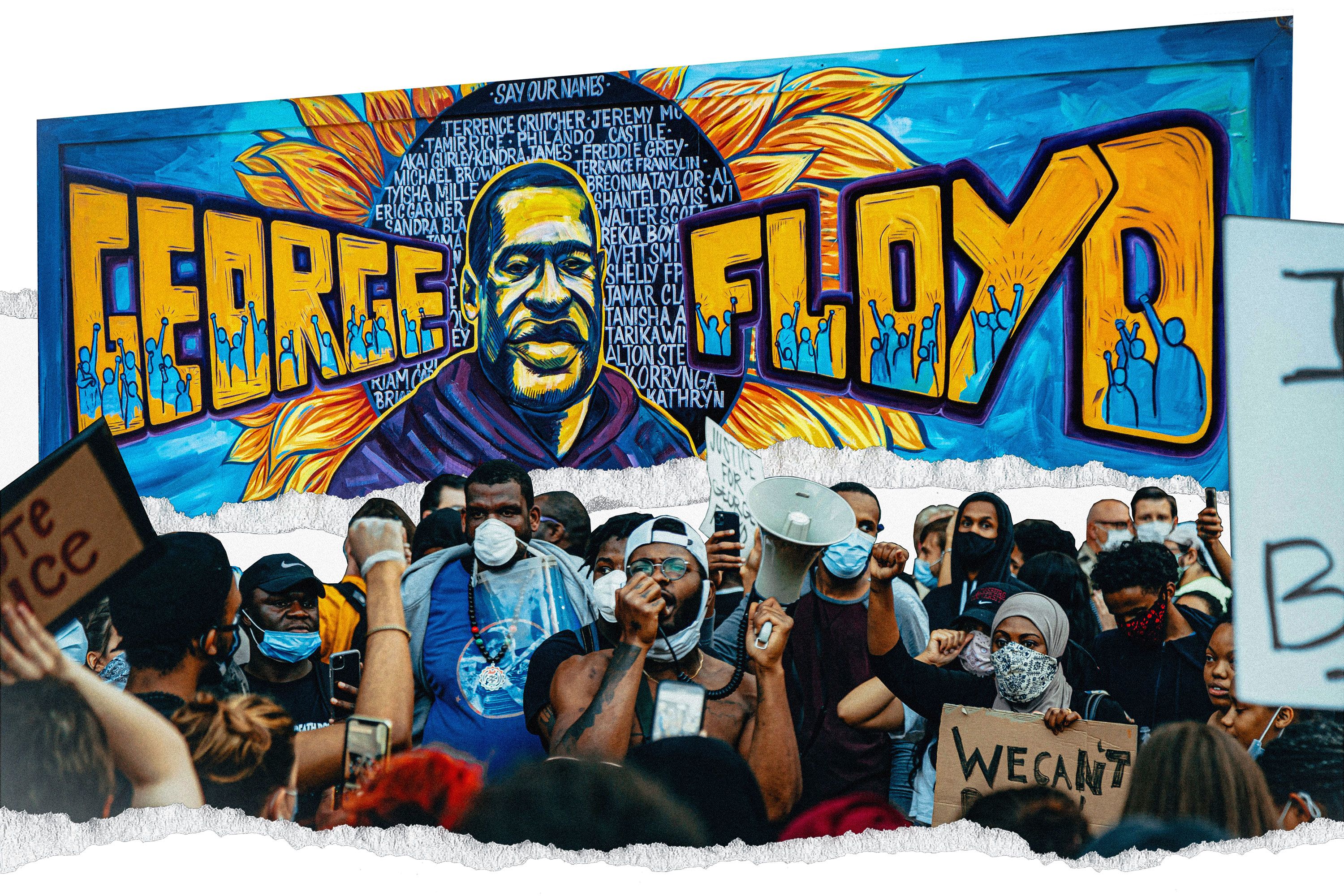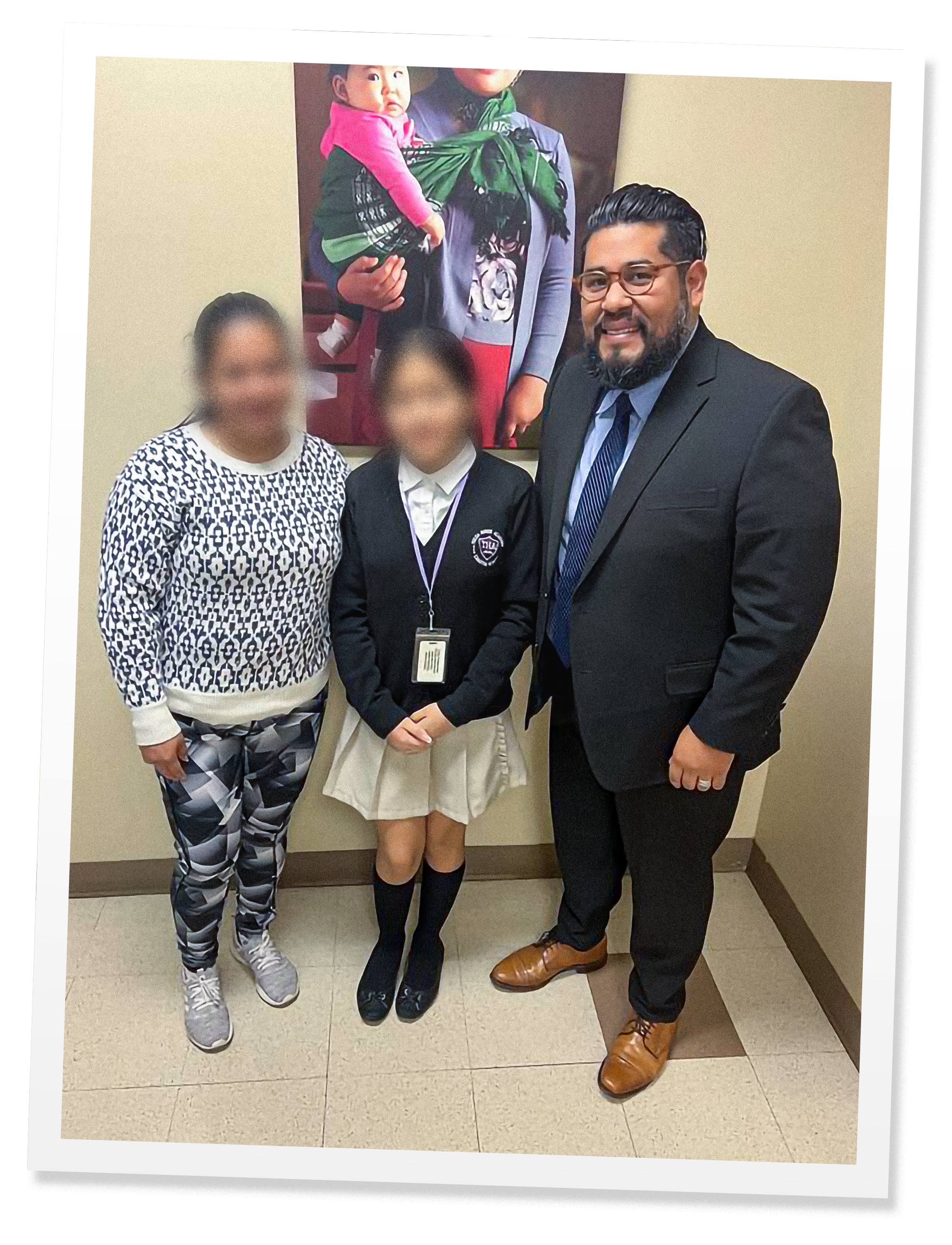Faith Over Fear
A Former DACA Recipient’s Journey to Ministry Through Immigration Legal Services

The Beginning of Fear
Aurora, Colorado, Immigration Detention Facility, October 2011

Setting down his tray, Lemuel sat down in the middle of an empty table. He stared down at his food but couldn’t bring himself to pick up his fork and eat.
Looking around at the other detainees in their blue jumpsuits, he felt an overwhelming sense of heaviness, a dark, cold feeling that radiated from his center outward. The fluorescent yet dim light of the detention facility, the dull chatter of a few of the men around him, the damp cold, the smell of putrid food – it all contributed to the depression, but it was not the root – no, that went much deeper.
It had been in a cafeteria not unlike this one that he first felt this dark shame. He had been nine years old, in line for school lunch, when he’d realized he did not have a punch card for lunch like all the other kids, and he had slipped out of line to ask the lunch ladies for help. They’d given him a form and said to return it the next day after his parents had filled it out. He had helped his parents go over the form (they didn’t speak English), returned it the next day, only to be told that an essential box had been left blank – there, where it said “social security number.”
“My mom said we just don’t have that one,” he’d replied with a shrug.
The look he received in return from the lunch ladies was what sent a chill through him that intensified into a cloud of stomach-sickening shame. A look of annoyance, frustration – a glance, with furrowed eyebrows, from one lunch lady to another that said, “What do we do with him?”
That was the day he first got an inkling that there was something his parents couldn’t give him, a reason for the feeling of anxiety that he could sense among his parents sometimes at home, a reason for why he often felt out of place at school among the other kids with their shiny new shoes and backpacks, or in class where he had a hard time understanding the fast-spoken English of his teacher.
He was undocumented, brought to the United States from Mexico at age 3 by parents who were only trying to survive, to make ends meet. The reality of what it meant to be undocumented would dawn on him over time, but the sense of deep shame and a feeling that he needed to hide that accompanied it was born at that moment, and never left him, surging fiercely at times and abating in others.
It was, of course, most intense now – when he was unexpectedly sitting in an immigration detention center in Colorado, with a threat of deportation hanging over his head.
How had this happened to him? Well – he knew how it had happened. Coming back from a church event, he and his friend Roberto had been pulled over for a busted taillight on Roberto’s car. The flashing police lights, the questions about his background and lack of papers, and the hubbub of his arrest had not phased him until much too late – until he was brought to jail, and then later to immigration detention.
How had this happened to him – Lemuel – the straight A student, the college scholarship recipient, the church group leader – how had he, who tried to live with such uprightness, a pillar in the community, ended up here awaiting deportation to a country he had never known?
What would happen to him – to his studies, his scholarship? To his family, whom he’d intended to help support? He was partway through his studies in engineering at a prestigious university which he had been accepted to in the course of a miracle; the college did not usually accept undocumented students. A chance encounter with the university’s president his senior year of high school had led his application to be reconsidered, and then, in a bizarre (or miraculous) turn of events, for university and other generous benefactors to find a way to help him pay for all four years of college.
And all of it now might come to nothing – a dream crushed, whisked out of his hands by a system that, from a young age, had treated him as a problem to be dealt with or at best ignored, even though he’d worked to outrun it with his personal success.
He knew his problems paled in comparison to some of the other men in here. There was Jose, his cell mate, who had crossed into the United States to find enough money to pay for the expensive drugs his mother needed to survive in his home country. “Now she will die,” Jose had said flatly, his voice gruff with suppressed emotion. There was Diego, the 18-year-old Salvadoran, who fled life with the gangs and now faced their vengeance upon his return.
The despair in the place felt palpable, as though it were hanging in the air. Even more than the prison where he was previously temporarily held, this atmosphere was inhuman, full of people who were defeated, deflated. Crushed.
He returned his tray full of most of the food, uneaten. He knew he was losing too much weight, but at that moment he did not care.

The Beginning of Faith
Aurora, Colorado Detention Center, One Day Later
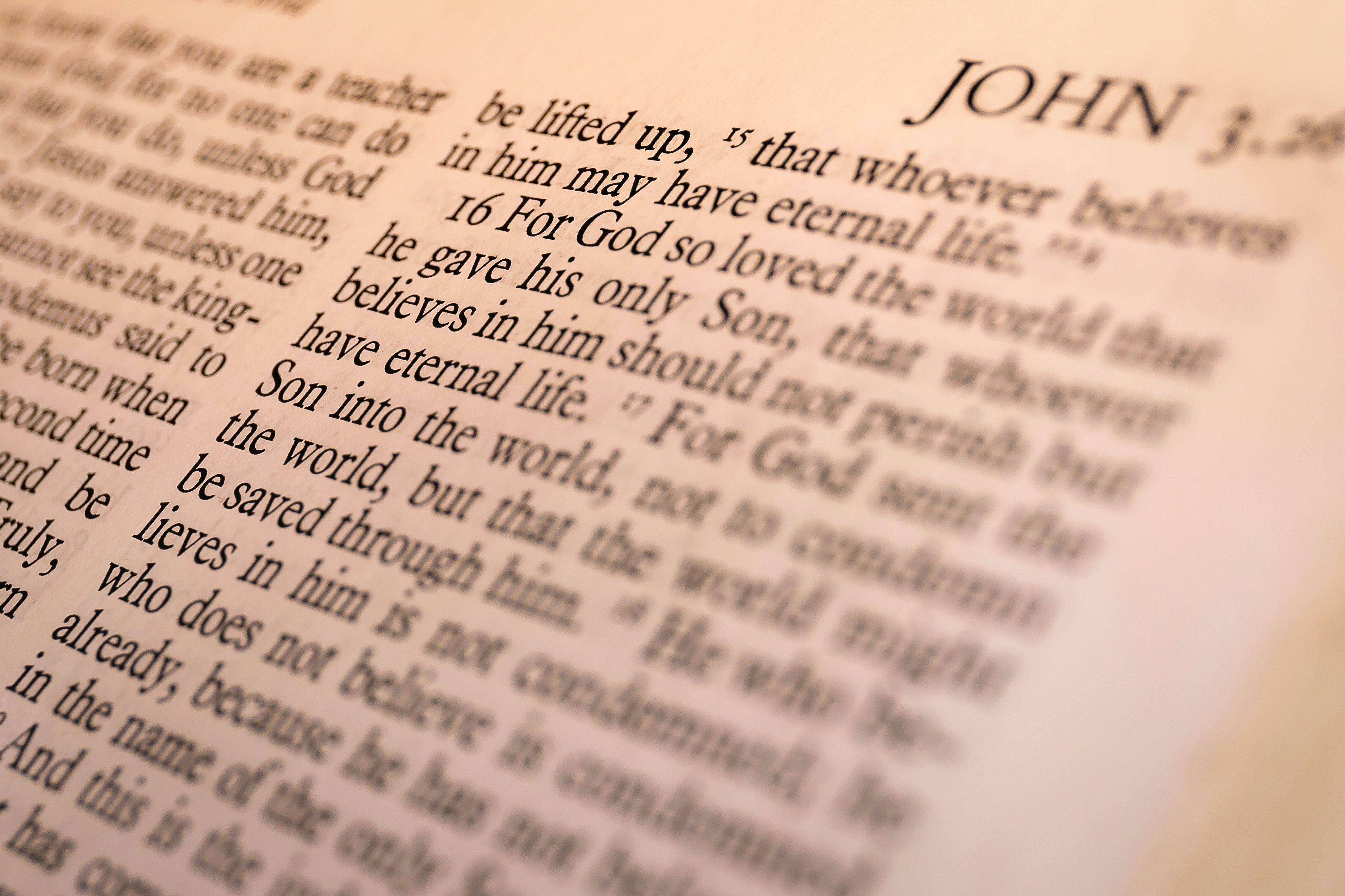

“¿Lees la Bibila?” (“You read the Bible?”)
Lemuel blinked in surprise. He sat where he did each day in the detention center, in a common area, his Bible open in front of him. He usually read uninterrupted, but now another detainee whom he didn’t know had approached him with that question.
He nodded.
“Do you know it well? Can you teach some of us the Bible?”
Lemuel’s eyes opened wider. Was this guy serious?
“Sure, I can teach you. When, and where? What do you want to know?”
After a few more exchanges they agreed to meet in the large corner cell at half past 7.
Lemuel had committed to reading the Bible every day that he was in here. Partly because he had so much free time, but mostly because it was the one thing that lifted his spirits even slightly.
Since late childhood Lemuel had been deeply invested in his faith, inspired by his parents who were devout Christians.
Around the age of 12 he had started to feel personally convicted of a sense of being known and loved by God. He prayed alone in his room, and had a mysterious, real sense that God did hear him. From around that time onward he felt less and less awkward and alone – he made friends, joined clubs, became involved in activities. He no longer felt alienated at school, but gained a sense of wonder and dove head first into his studies. Soon he was at the top of his class.
He attributed all of this to God’s work in his life. At every step he felt that God gave him what he needed, was leading him to some path and purpose. This feeling was the one thing that countered the feeling of shame and fear that would also bubble up in him related to his lack of documents and unknown future.
Even here, in detention, there was something that kept him returning to his Bible, even despite the grip of shame and fear.
He met that night with a few men in the large corner cell. They went over a few psalms together, with Lemuel reading them aloud and reflecting with the men on how the psalms were songs written to God that allowed us to voice our innermost emotions and needs. The men left quietly, and asked if they could meet the same time the next day.
The next evening there were more men – maybe 5. The following day, 8. It grew each day until there were 20 men squeezing into the corner cell after dinner.
A couple of the evenings, the conversation around Bible passages led to men sharing their own stories. One man – Jose — wept like a child talking about his sick, dying mother in Mexico. Another evening, one of the men asked if they could sing. Lemuel watched in wonder as a few men led the group in some Spanish worship songs and some of the men, previously withdrawn, closed their eyes and even lifted their hands while singing.
He couldn’t believe this was happening. And yet, he could – being there, for that hour of prayer in the detention center cell, he felt an indescribable happiness and peace. The weight was lifted; a sense of lightness, purpose, and calm focus returned. God was here, even in this place of his worst nightmares. And Lemuel felt fully alive and at peace helping other men see it.
Days later he was suddenly released from detention and his immigration case later administratively closed. He resumed his studies – still with the specter of deportation chasing him, but as a changed man. His studies consumed him again, but there was something that had been awakened in him; a desire to know again and to share that peace beyond understanding.

The Search for Mission
Downtown Houston, Texas. Five years later. February 2016.

Carrying a small box of his possessions, Lemuel pushed open the glass doors and exited the office building toward the parking lot.
It was his birthday. And he’d just gotten laid off from his job. At that moment all he felt was a stunned disbelief. Half an hour earlier he’d been abruptly called into a meeting where he’d found his supervisor and the heads of HR seated around a table. His supervisor, Anne, with whom he got along swimmingly, had tears in her eyes. She communicated the news that he was being laid off, then left as HR began the spiel about how to terminate his work accounts and leave the building.
He knew it was not personal – the oil industry, within which he worked as an engineer, was experiencing a downturn, and his company had to cut staff. But it stung.
Landing this job had been the culmination of over a decade of high achievement. Even the few months blip in immigration detention hadn’t slowed him down, and he had continued to feel that God was guiding him forward on this path of success, helping him maneuver around every obstacle until he’d landed here in Houston, working what he’d thought was the job of his dreams, with a six-figure salary.
Landing DACA had been another, prior miracle on his journey.
As Lemuel was finishing graduate school, he had been beginning to despair that after two engineering degrees he would graduate without work authorization in the United States. He prayed for a miracle – and that summer, in 2012, President Obama announced the DACA program for undocumented people brought to the United States as kids, for which he qualified. He’d be able to work and be protected from deportation. A major weight was lifted off of his chest.
The first job at an oil company he’d applied to and gotten an offer for had rescinded their offer upon learning that he was a DACA recipient. DACA was too new, they said, and it was still too risky to hire someone without permanent status.
But the second job, at a different oil company, had worked out. The past few years there had been a comfortable blur of hard work, socializing, and enjoying the freedom of a good paying job and lack of worry about his undocumented status. Why, then was he not more devastated at being laid off?
He got in his car and drove through the streets of Houston. As he drove, it dawned on him: he’d been happy these few years, but not fulfilled. Ever since that experience in the detention center of a new level of peace and fulfillment while he’d be leading men in prayer and finding God even in his darkest hour, he’d felt this nudge, this itch to follow God in a new way, to know and spread God’s peace to others. The six-figure salary, the prestigious job – these were what he had dreamed of, but they didn’t fill him with that joy.
Here was an opportunity, an open door to pursuing the life that he sensed God was calling him to. What would come next, though? Could he really afford to leave financial security behind?
As he drove away from the Houston downtown skyline he felt some of the shock and sadness about losing the job dissipate. In its place a feeling of excitement and anticipation settled in, motivated by that mysterious, thrilling sense of purpose.










But the second job, at a different oil company, had worked out. The past few years there had been a comfortable blur of hard work, socializing, and enjoying the freedom of a good paying job and lack of worry about his undocumented status. Why, then was he not more devastated at being laid off?
He got in his car and drove through the streets of Houston. As he drove, it dawned on him: he’d been happy these few years, but not fulfilled. Ever since that experience in the detention center of a new level of peace and fulfillment while he’d be leading men in prayer and finding God even in his darkest hour, he’d felt this nudge, this itch to follow God in a new way, to know and spread God’s peace to others. The six-figure salary, the prestigious job – these were what he had dreamed of, but they didn’t fill him with that joy.
Here was an opportunity, an open door to pursuing the life that he sensed God was calling him to. What would come next, though? Could he really afford to leave financial security behind?
As he drove away from the Houston downtown skyline he felt some of the shock and sadness about losing the job dissipate. In its place a feeling of excitement and anticipation settled in, motivated by that mysterious, thrilling sense of purpose.
The Search for a Ministry
Tulsa, Oklahoma, 2022

It was over – the hubbub of final classes, papers, graduation. Lemuel’s time in seminary had come to an end. Now he sat in front of his laptop, hands posed over the keyboard, ready to dive into his search for a job in pastoral ministry. But he wasn’t sure where to begin.
After he’d been let go of his engineering job in Houston, he’d found part-time work as a youth pastor, as well as work at the mall selling fragrances to make ends meet. The whole thing had been both invigorating and humbling. He’d loved the pastoral work, felt more passionate about it than any work he’d ever done, but he quickly realized he didn’t know enough about God and scripture to really teach the kids what they wanted and needed to know. He had a passion for ministry; now he needed to gain skill.
So he applied to seminary. He was accepted to a divinity program at Oral Roberts University in Tulsa, Oklahoma, and had ended up landing a prestigious scholarship and fellowship for part of his time there.
It had been an incredible 4 years. He’d met his now-wife — a U.S. citizen — there; they’d gotten married in 2020 in the middle of the pandemic. He had finally been able to move forward toward getting legal status. His classes were engaging, and he’d gained practical skills in ministry that made him pulse with an energy to go out and teach and spread the Gospel.
But now, full of this potential, he was unsure how to channel it. He didn’t feel like he could look for a straightforward ministry job at just any church. And that was because of an awakening he’d had in the summer of 2020.
It had happened when he’d first watched the video of George Floyd’s murder. Like millions of Americans he’d been sickened, horrified by this brutal act – and, also like millions of Americans, he’d felt a kinship with George Floyd. It felt personal. As he watched George Floyd struggle, his own chest felt constricted.
He couldn’t name exactly why at first. He did not want to claim the same experience as Black Americans, and he knew he’d had privileges, such as attending college, that many people only dream of. But the sense of being crushed, of feeling a pain ignored by or invisible to others, of having breath squeezed out of him by a system – that felt familiar. Watching that video invoked his own experiences of shame and fear as a child, and again as an adult, in jail and immigration detention and throughout his career, related to his lack of papers and legal pathways, his sense of being an “other,” a fundamental outsider in this country but without another home.
After such a visceral reaction to George Floyd’s death and the movement of protests that followed, Lemuel had done some soul searching, aided by his wife. Over time he came to recognize that his passion for ministry — his personal vocation in life — was inextricably bound up with his immigration experience. The battle between the shame related to “otherness” of being an undocumented Mexican-American and the overpowering love of God was at the center of who he was, and he had to draw from that experience to minister authentically to others.
How could he help other immigrants see their worth and purpose in the midst of impossible circumstances and injustice? Help them see that God was with them in their pain? He had felt not only like an illegal in this country, but like he had an “illegal soul,” as he’d once put it — how could he help others reject that lie?
It felt silly, but sitting at the computer at that moment, he googled, “jobs helping immigrants,” pressed enter, and waited.
One of the first things that came up was, “Legal Assistant – Catholic Charities Tulsa.”
Huh. Immigration legal services. He’d never considered that. It wasn’t ministry, exactly. But was it? Who had changed his trajectory more than those who had helped him get out of immigration detention? What if this was how he could walk beside other immigrants, helping with their legal cases but also reminding them how worthwhile they were, giving them hope for a better future?
He'd have to learn immigration law. But that seemed like a small price to pay, and something that, given his sharp mind, education, and aptitude for learning, perhaps he was well suited for.
He put in an application. It couldn’t hurt.

Immigration Legal Services:
A Ministry, a Mission
Zoom event, December 2022

Lemuel sat down at a table in his office. As he got settled and arranged his notes and papers, he looked around at others' faces reappearing on the screen.
There were about 20-30 participants – all aspiring Department of Justice accredited representatives like himself.1
Like him, none had gone to law school. He knew — and could tell — that many, if not most, were immigrants like himself. And all were hoping to be able to represent members of their community in immigration court who were facing deportation.
This was an intensive training opportunity, run by CLINIC, where participants would gain hands-on experience practicing for court, learning in-depth immigration law, and receiving mentoring so that they could apply for full accreditation from the Department of Justice to practice immigration law. He had been sent there to get accredited by Catholic Charities, where he now worked as a legal assistant in the immigration services office.
He felt a thrilling sense of rightness and purpose.
It was ten years since the time he spent in immigration detention. In a way, he felt very different from the person who was nearly overcome by despair in that place — and yet, he could viscerally feel the fear that had haunted him, as well as the sense of God’s love and presence that he’d found even there. The combination of those two feelings — so familiar — were what had propelled him here, and what made him feel a sense of certainty that this job, for now, was what he was supposed to be doing.
Soon he would have his own clients. He’d go to court with them, hear their stories, accompany them and do his best to serve them. He couldn’t wait.
The CLINIC presenters drew everyone’s attention to begin the afternoon presentation.
“Alright, do we have a volunteer to practice presenting your client’s case to the ‘immigration judge,’ who today will be played by my colleague?”
Lemuel quickly raised his hand.
“I’ll do it.”
Lemuel (right) with two of his immigrant clients.
This story was written by CLINIC staff member Kathleen Kollman Birch through extensive interviews with Lemuel Godinez, a fully accredited representative at Catholic Charities, Eastern Oklahoma. CLINIC wants to thank Lemuel for his time and willingness to share his inspiring story. Visual design for the story was done by CLINIC's multimedia designer, Ryan Saunders.




